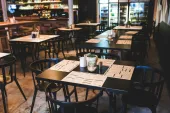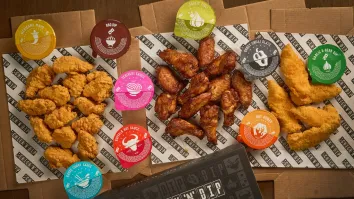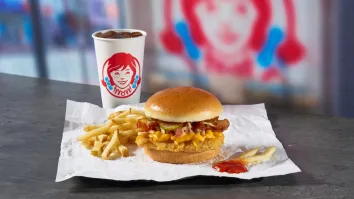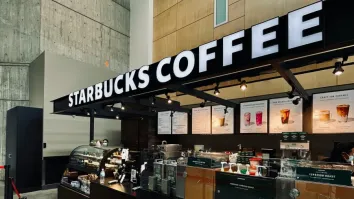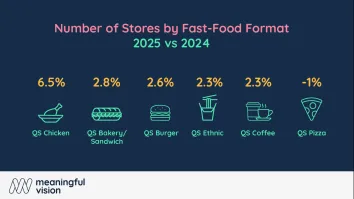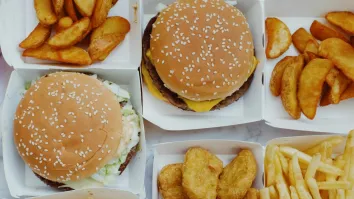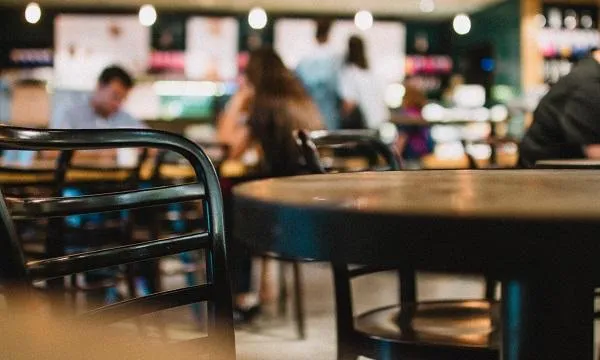
‘Super Saturday' footfall fails to reach hoped-for surge, geo-location data suggests
Dine-in has yet to make an impact.
The 4 July reopening date, dubbed ‘Super Saturday’, saw footfall across the UK hospitality sector recover to just 21% of pre-COVID-19 levels, up from 17% the previous Saturday, according to insights from Huq Industries.
Huq’s restaurants and pubs index measures footfall across 23,035 restaurants, quick-service outlets (QSR) and pubs UK-wide, based on mobile phone geo-location data.
Mobile data revealed a combination of takeaway visits, delivery driver pick-ups and the presence of staff preparing outlets for opening on Super Saturday, with the company suggesting that the dining-in opportunity “has yet to translate into a meaningful increase in visits.”
Per category, the QSR sector has recovered to 26% of pre-Covid levels, up 2% from Saturday 27th June. Restaurants stood at 18% of pre-Covid levels, up 2% whilst pubs stand at 14% of pre-Covid levels, up 4%.
“This sluggish performance is in line with other, anecdotal evidence from restaurants. The Huq Index has been trending upwards since early June but this reflects the opening up of restaurants for takeaway and delivery. The hoped-for surge on Saturday did not materialise and the restaurant sector still has a mountain to climb,” food services expert Peter Backman said
“While headlines would like us to believe that footfall into hospitality outlets is surging, the picture our data reveals may unfortunately not be as positive. Although total high street footfall has risen this does not yet appear to be translating into many more visits to pubs and restaurants,” Huq CEO Conrad Poulson added.
“Underwhelming” reception
In his weekly update, Backman also described the reception to the restaurant reopenings as “underwhelming”, but clarified that his view is based on “partial evidence and supposition”, having visited only a few sites.
“It doesn’t reflect survey findings which tend to show that a third of Brits are keen to eat out as soon as they can. But it is only correct to note that the weather, at least in the evening, was drizzly and certainly not warm for July - this may have kept diners away. Also, foreign visitors who normally make up a large contingent of diners, at least in Hampstead, are absent – but they are likely to remain absent for the rest of the summer,” he said.
A cautious return to trading
A business confidence survey from CGA and Fourth, carried out in late June,perhaps indicated a cautious return to trading, as 84% of hospitality sector leaders indicated uncertain consumer demand as key concern. City and town centres also pose a challenge, with 75% of respondents expecting consumers to be reluctant to visit them post lockdown.
The findings revealed that 59% of businesses in England planned to reopen some sites last Saturday, whilst a further 18% intend to open during the following week.
However, on average, operators plan to open only three in five sites during the first week back, and a quarter (25%) plan to open all their sites initially.
“Excitement has to be tempered by huge uncertainty about consumer attitudes and trading, and it’s little surprise to see concerns about redundancies, closures and profits. While it’s pleasing that confidence is seeping back into the market, businesses will be anxiously waiting for the ‘new normal’ of eating and drinking out to emerge,” CGA group chief executive Phil Tate said.
Despite 83% of respondents stating they have confidence in their supply chain, the majority of businesses will reopen with reduced menus, with 82% of respondents saying they were cutting back food menus to core options, and 41% indicating they will be stripping back their drinks menu, with cocktails being the hardest hit category.
“While it’s positive to see such strong confidence in the supply chain, we are actually seeing a bumpy ride ahead for operations as the supply chain remobilises under such challenging circumstances, which can only be lessened through proactive discussions with suppliers around revised menu item availability and delivery slots,” Fourth senior vice president James England added.
The survey also revealed that 67% of industry bosses believe they will have to lay off staff, rather than bringing them back from furlough. On average, they anticipate cutting a fifth (21%) of their workforce.
43% of leaders also expect not to permanently close any sites, up from 37% in April. On average, data suggests that some one in 12 sites may remain closed permanently.
The survey also pointed to some recovery in business confidence, with 32% of leaders now optimistic about their business’ prospects over the next 12 months compared to the past three months. However, this figure is far from the 58% tallied a year ago,
Rent negotiations remain the most pressing challenge, with operators having only modest confidence in the government’s new code of practice for tenant negotiations.
Examining the long-term impact of COVID-19, 44% of business leaders expect an increase in home delivery frequency post-lockdown, with 55% listing delivery as a revenue stream they are prioritising. 51% of the respondents indicated that technology, in particular ordering apps, would be a priority for businesses moving forward.

